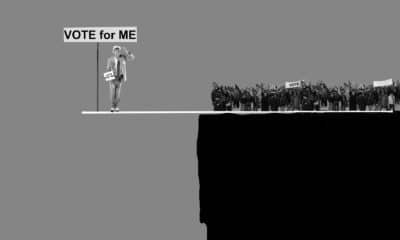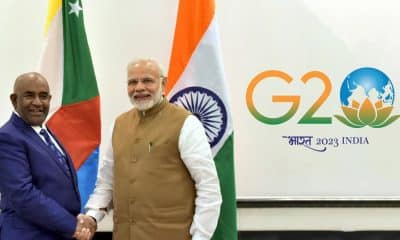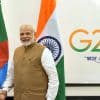News
PM Modi urges SCO to develop template to effectively deal with challenges of extremism and radicalization
India’s Prime Minister Narendra Modi, at the virtual Shanghai Cooperation Organization (SCO), called for developing a template to effectively deal with the challenges of extremism and radicalization.
“I believe the biggest challenges in this area are related to peace, security and trust-deficit and the root cause of these problems is increasing radicalization,” he said. “Recent developments in Afghanistan have made this challenge more apparent. SCO should take an initiative on this issue.”
PM Modi highlighted the region’s history, saying the region of Central Asia has been a bastion of moderate and progressive cultures and values. “Traditions like Sufism have flourished here over the centuries and spread throughout the region and the world. We can still see their influence in the cultural heritage of this region. On the basis of this historical heritage, SCO should develop a common template to fight radicalization and extremism. In India, and almost in all SCO countries, there are moderate, tolerant and inclusive institutions and traditions associated with Islam. SCO should work to develop a strong network between them. In this context, I appreciate the useful work being done by SCO-RATS. We expect our SCO partners to actively participate in the calendar of activities that has been built for India’s Presidency of SCO-RATS.”
The Indian prime minister believes fighting radicalization is not only necessary for regional security and mutual trust, but also for the bright future of the younger generations. To compete with the developed world, Modi said the region has to become a stakeholder in emerging technologies.
“We can promote this kind of thinking and innovative spirit by connecting our young entrepreneurs and startups. With this approach, India organized the first SCO Startup Forum and Young Scientists Conference last year. In the previous year, India has successfully used technology in its development journey. Whether it is technologies like UPI and Rupay Card to increase financial inclusion or digital platforms like Aarogya-Setu and COWIN in the fight against COVID, we have voluntarily shared these with other countries as well. We will be happy to share these open source technologies also with our SCO partners and to organize capacity building activities for this.”
Also Read: India sees “optimism” in World Bank halting publication of Doing Business report
In regards to the region’s economy, PM Modi highlighted that the vast economic potential of this region has also remained untapped due to radicalization and insecurity. “The role of Central Asia in history has been that of a connectivity bridge between major regional markets. This was also the basis of the prosperity of this region. India is committed to increasing its connectivity with Central Asia.”












































